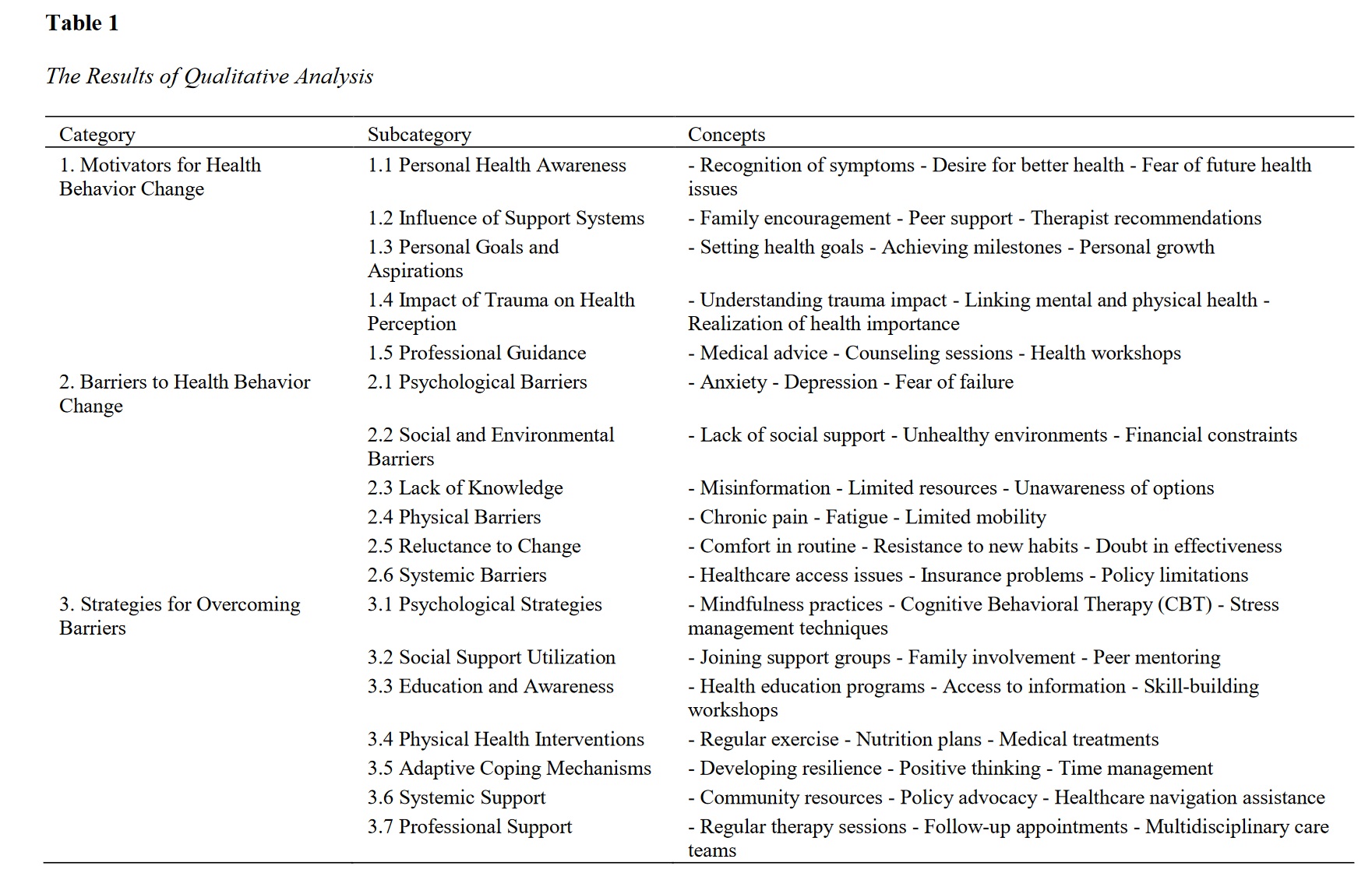Health Behavior Change in Post-Traumatic Stress Disorder: Patient Perspectives
Keywords:
PTSD, health behavior change, qualitative research, motivators, barriers, strategies, mental health, psychological support, social support, thematic analysisAbstract
The objective of this study was to explore the perspectives of individuals with Post-Traumatic Stress Disorder (PTSD) on health behavior change, identifying key motivators, barriers, and strategies that influence these changes. This qualitative study utilized semi-structured interviews with 24 participants diagnosed with PTSD. Participants were recruited from a mental health clinic and interviewed about their experiences with health behavior change. Data were analyzed using NVivo software, following a thematic analysis approach to identify common themes and subthemes. The sample size was determined by theoretical saturation. The study identified five main motivators for health behavior change: personal health awareness, support systems, personal goals and aspirations, understanding trauma's impact on health, and professional guidance. Barriers included psychological (anxiety, depression, fear of failure), social and environmental (lack of support, unhealthy environments), lack of knowledge, physical (chronic pain, fatigue), reluctance to change, and systemic issues (healthcare access). Strategies for overcoming these barriers involved psychological techniques (e.g., mindfulness, CBT), social support, education and awareness, physical health interventions, adaptive coping mechanisms, systemic support, and professional guidance. For example, 58.3% of participants (14 out of 24) emphasized the importance of family encouragement in motivating health changes, while 41.7% (10 out of 24) reported chronic pain as a significant barrier. Health behavior change in individuals with PTSD is influenced by a complex interplay of motivators and barriers. Effective strategies include psychological therapies, social support, education, and systemic changes. Understanding these factors can help practitioners develop comprehensive interventions to support health behavior change in individuals with PTSD, ultimately improving their overall well-being and quality of life.
Downloads

Downloads
Published
Issue
Section
License
Copyright (c) 2024 Qi Shen (Corresponding Author); Ye. Mu, Pei-Yin Shin (Author)

This work is licensed under a Creative Commons Attribution-NonCommercial 4.0 International License.






